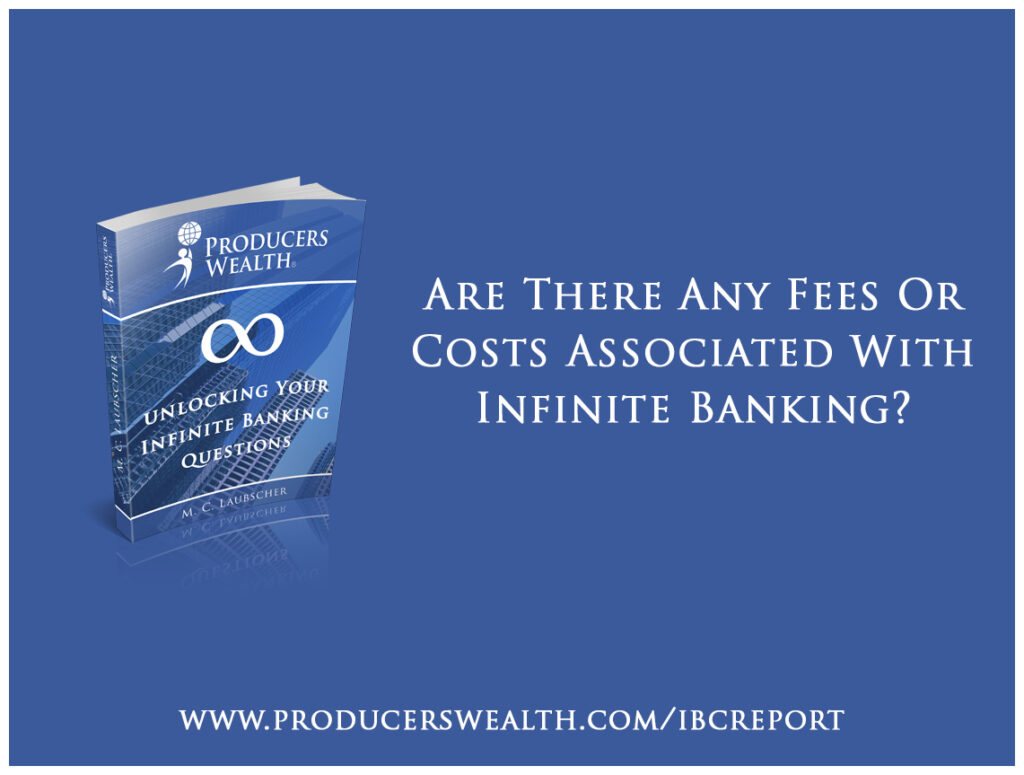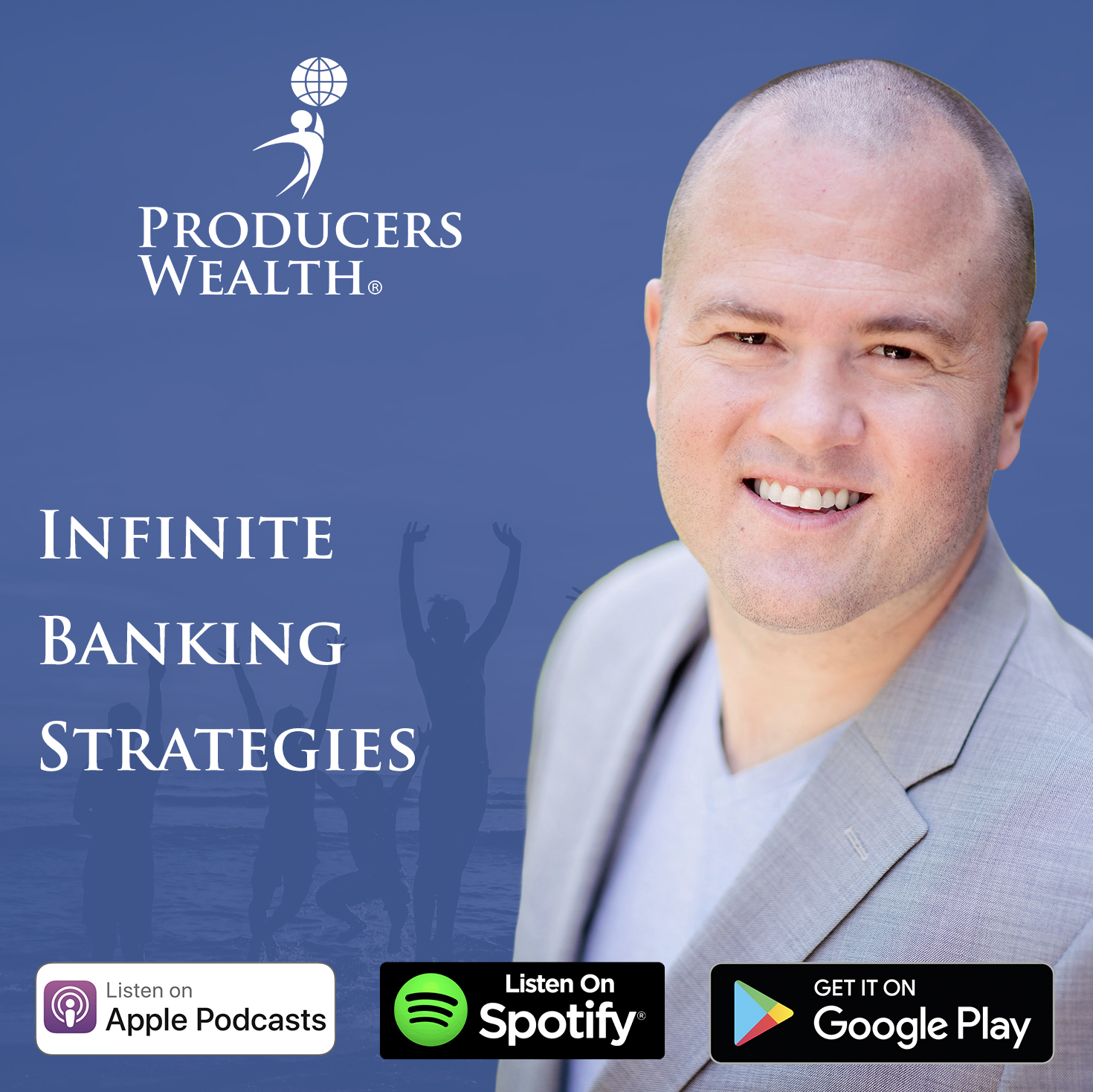
The concept of infinite banking itself doesn’t have specific fees or costs, the whole life insurance policy used as the foundation for this strategy comes with various fees and costs. Understanding these costs is crucial when considering implementing Infinite Banking.
Some of the associated fees and costs include:
Premiums: Whole life insurance policies require premium payments to maintain coverage and grow the policy’s cash value. These premiums are generally higher than term life insurance premiums due to the lifetime coverage, guaranteed death benefit, and cash value accumulation.
Policy fees and expenses: Whole life insurance policies typically have fees and expenses built into the premium payments. These may include administrative fees, mortality and expense risk charges, and other policy-related costs.
Commissions: Insurance agents and financial advisors who sell whole life insurance policies receive commissions from the insurance company. These commissions are often factored into the premium payments during the initial years of the policy. The way that Infinite Banking policies are structure results in the agents reducing their commissions by as much as 70%.
Surrender charges: If you decide to cancel your whole life insurance policy and withdraw the cash value during the early years of the policy, you may be subject to surrender charges. These charges are designed to recoup some of the insurance company’s initial costs associated with issuing the policy. Surrender charges typically decline over time and eventually disappear after a certain number of years.
Policy loan interest: Infinite banking relies on taking out policy loans against the cash value of the whole life insurance policy. While these loans provide flexibility and tax advantages, they also come with interest charges. The interest rate on policy loans varies depending on the insurance company and the specific policy. If the loan and interest aren’t repaid, the outstanding balance will reduce the policy’s cash value and death benefit.
Comparing The Fees Of Infinite Banking With Your Financial Advisors Assets Under Management (AUM) Fees
Let’s compare the fees and costs of Infinite Banking with the fees and costs financial advisors charge managing equity portfolios and the fees and the costs that mutual funds charge.
Fees for Financial Advisors managing equity portfolios and mutual funds:
Management fees: Financial advisors typically charge a percentage of assets under management (AUM) for managing equity portfolios and mutual funds. This fee ranges from 0.5% to 2% per year, depending on the complexity of the portfolio and the advisor’s expertise.
Transaction fees: Financial advisors may charge fees for buying and selling securities within the portfolio. These fees can be a flat rate per transaction or based on a percentage of the transaction value.
Expense ratios: Mutual funds have expense ratios, which represent the fund’s operating expenses as a percentage of its total assets. These expenses include management fees, administrative costs, and other fund-related expenses. Expense ratios typically range from 0.1% to 2% per year, with actively managed funds generally having higher expense ratios than passively managed funds (e.g., index funds).
Load fees: Some mutual funds charge a load fee, which is a sales commission paid to the financial advisor for buying or selling the fund. Load fees can be front-end (charged when purchasing the fund) or back-end (charged when selling the fund). These fees typically range from 1% to 5% of the investment amount.
In comparing the fee structures between whole life insurance policies to the fees charged by financial advisors and mutual funds, it is important to consider the cumulative effect of these fees over time and the different services provided.
Here’s a breakdown of how whole life insurance policy fees may be perceived as less expensive compared to the fees charged by financial advisors and mutual funds:
Time horizon: Whole life insurance policies have a long-term focus, with the primary goal being wealth accumulation and preservation over several decades. While the initial fees and commissions associated with whole life policies may be higher, these costs are often offset by the long-term growth of the policy’s cash value and guaranteed death benefit. On the other hand, financial advisors and mutual funds charge fees annually as a percentage of assets under management (AUM). Over time, these fees can erode the investment returns, particularly in cases where the funds underperform the market.
Tax advantages: Whole life insurance policies offer tax advantages that can enhance their overall returns. The cash value growth within the policy is tax-deferred, and policy loans are generally tax-free, provided the policy remains in force. This tax efficiency can help offset some of the fees associated with whole life policies. In contrast, investments managed by financial advisors and mutual funds are typically subject to capital gains taxes, which can further reduce returns.
Guaranteed growth and protection: Whole life insurance policies provide a guaranteed cash value growth rate and a guaranteed death benefit. This means that, regardless of market conditions, the policy’s cash value will continue to grow over time, providing a level of financial security and stability. On the other hand, the performance of equity portfolios and mutual funds managed by financial advisors can be subject to market volatility, and the fees charged may not necessarily correspond with the returns generated.
Cumulative effect of fees: The fees charged by financial advisors and mutual funds are typically assessed as a percentage of AUM. Over time, these fees can have a significant impact on the overall returns of the investments, particularly if the funds underperform the market. In comparison, while whole life insurance policies have higher upfront costs, the long-term growth of the policy’s cash value can help to offset these costs. Moreover, policyholders have more control over the fees they pay, as they can choose to take out policy loans or adjust their premium payments based on their financial needs.
An independent research group, The Palm Beach Research Group, famous for their “Palm Beach Letter” publication conducted in-depth research regarding life insurance policy fees and commissions and how they compare to mutual funds.
Their research concluded the following:
A 1.5% mutual fund fee generates 8X as many fees as a whole life insurance policy over 40 years.
That 1.5% fee caused a difference of $718,433 in final account value for a loss of 36%.
After 20 years, the fees in the life insurance policy equate to what would be a mutual fund fee of 0.50%.
After 30 years, the fees in the life insurance policy equate to what would be a mutual fund fee of 0.25%.
After 40 years, the fees in the life insurance policy equate to what would be a mutual fund fee of 0.15%.
While mutual funds and life insurance is apples and oranges, it’s worth understanding how fees work.
Watch all of our educational videos on Infinite Banking here.
Disclaimer and Waiver
Michiel Laubscher & Laubscher Wealth Management LLC is not an investment advisor and is not licensed to sell securities. None of the information provided is intended as investment, tax, accounting, or legal advice, as an offer or solicitation of an offer to buy or sell, or as an endorsement, of any company, security, fund, or other offerings. The information should not be relied upon for purposes of transacting securities or other investments. Your use of the information contained herein is at your own risk. The content is provided ‘as is’ and without warranties, either expressed or implied. Michiel Laubscher & Laubscher Wealth Management LLC does not promise or guarantee any income or specific result from using the information contained herein and is not liable for any loss or damage caused by your reliance on the information contained herein. Always seek the advice of professionals, as appropriate, regarding the evaluation of any specific information, opinion, or other content.





